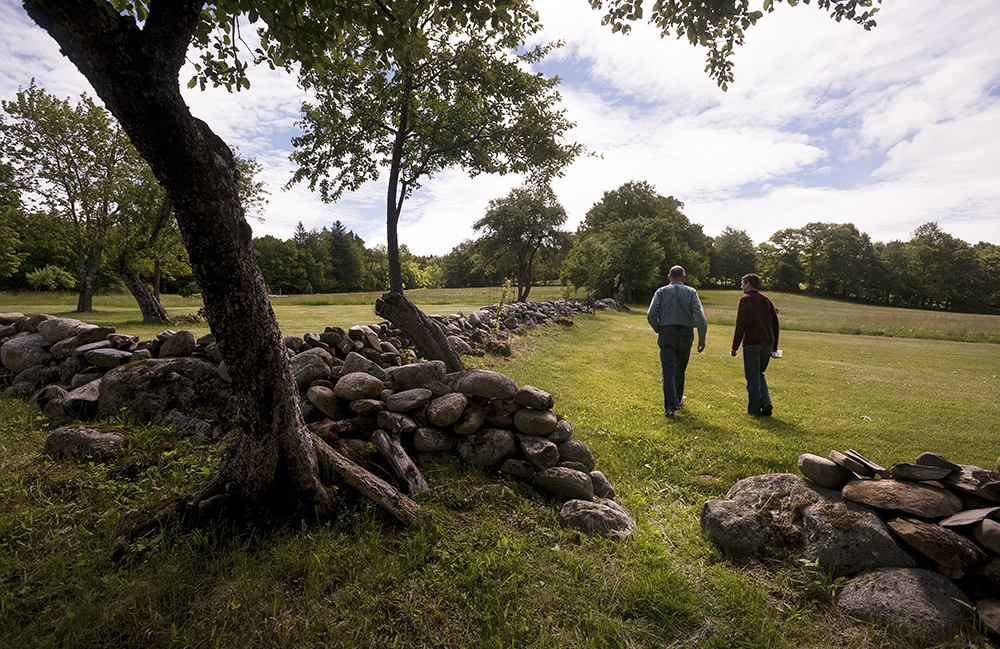How the coronavirus pandemic has changed homesteaders in Maine

While daily life for Maine’s homesteaders hasn’t changed much, the impact of COVID-19, the illness caused by the coronavirus, is still being felt in the community as businesses shut down, plans get altered and folks find new ways to do familiar tasks.
Maine homesteaders have built their lives around self-sufficiency, with stockpiles of food and a habit of inadvertently practicing social distancing by dint of their lifestyle. They felt mostly prepared for the pandemic. Still, even homesteaders are not immune to the changing world.
As with many people during the pandemic, financial security is an issue in light of the weakened economy. Some have lost full-time and part-time jobs that were helping them to support their lifestyles and pay off their debts.
“Just before this virus, my wife and I had set a goal for getting out of debt,” said Bob Herbert, a homesteader based in Norway. “This will probably slow us down a bit. We are definitely learning from this experience and will plan a little better for the future.”
Herbert wishes his family had accumulated more savings prior to the pandemic.
“Our monthly [bills] for our home and cars are higher than our current savings,” Herbert said. “I hope this doesn’t last all summer.”
But financial matters aside, the impact of the pandemic has also led some homesteaders to reflect more on their lives, finding gaps in their knowledge that they now have time to remedy.
For Randy Sullivan and his wife, homesteaders based in Knox, that means brushing up on gardening skills and learning what they can from afar about canning.
“For us, I fast realized that when it comes to meat we are more than ready,” said Randy Sullivan, a homesteader based in Knox. “However, gardening, veggie and fruit preservation are places we need to improve on a great deal. This will be the motivation we need to learn!”
Sullivan said he and his wife are “not the best gardeners,” but they have already stocked up on gardening and canning supplies to build their skills.
“We fully intend to make this season a good one,” Sullivan said. “We are expanding our garden by almost twice the size and we now have a new pressure canner. We have a very good selection of vegetable seeds and we are very excited to see what we can do this year.”
Sullivan said that he and his wife hope to take a class on canning once restrictions on social distancing and gatherings have lifted. For now, they have been reading about canning online and watching how-to videos on YouTube.
But some homesteaders are looking to take advantage of the opportunity presented by the new world post-coronavirus where more people may be interested in the self-sufficient lifestyle. Some homesteaders believe that there will be new opportunities to teach people about the skills they have been developing since they started homesteading.
Robin Follette, a homesteader in Talmadge, said she used to teach self-sufficiency and preparedness workshops. She is thinking about starting again once everything has settled down.
“We have a new generation since Y2K sent people into a preparedness frenzy, and folks who stopped taking the possibility of crisis seriously when Y2K didn’t happen,” Folette said. “I’m outlining a few outdoor [and] homestead skills workshops I might offer again if there seems to be interest after this passes.”
